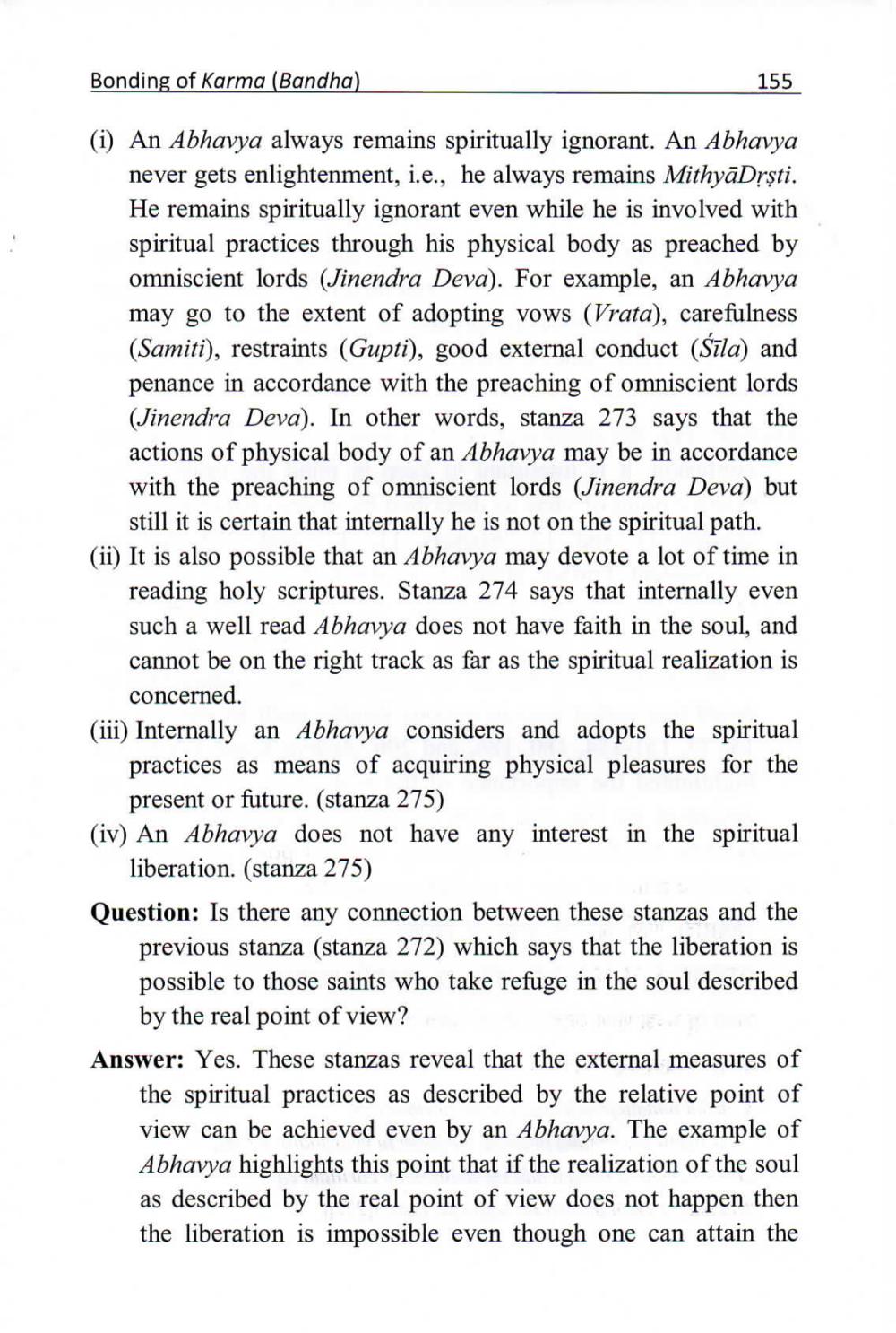________________
Bonding of Karma (Bandha)
(i) An Abhavya always remains spiritually ignorant. An Abhavya never gets enlightenment, i.e., he always remains MithyāDṛşti. He remains spiritually ignorant even while he is involved with spiritual practices through his physical body as preached by omniscient lords (Jinendra Deva). For example, an Abhavya may go to the extent of adopting vows (Vrata), carefulness (Samiti), restraints (Gupti), good external conduct (Sila) and penance in accordance with the preaching of omniscient lords (Jinendra Deva). In other words, stanza 273 says that the actions of physical body of an Abhavya may be in accordance with the preaching of omniscient lords (Jinendra Deva) but still it is certain that internally he is not on the spiritual path. (ii) It is also possible that an Abhavya may devote a lot of time in reading holy scriptures. Stanza 274 says that internally even such a well read Abhavya does not have faith in the soul, and cannot be on the right track as far as the spiritual realization is concerned.
155
(iii) Internally an Abhavya considers and adopts the spiritual practices as means of acquiring physical pleasures for the present or future. (stanza 275)
(iv) An Abhavya does not have any interest in the spiritual liberation. (stanza 275)
Question: Is there any connection between these stanzas and the previous stanza (stanza 272) which says that the liberation is possible to those saints who take refuge in the soul described by the real point of view?
Answer: Yes. These stanzas reveal that the external measures of the spiritual practices as described by the relative point of view can be achieved even by an Abhavya. The example of Abhavya highlights this point that if the realization of the soul as described by the real point of view does not happen then the liberation is impossible even though one can attain the




